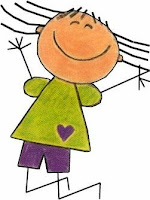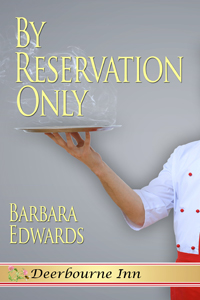Please welcome Heather Redmond...or is it Heather Hiestrand? You tell us, Heather. OH! And don't forget to comment for the chance at a free book!
A
Tale of Two Murders by Heather Redmond Releases Today
Hello
from my new writer identity, Heather Redmond. I’ve been romance novelist Heather
Hiestand for a long time, but my publisher gave me the opportunity to take my
Victorian research into the historical mystery realm and I’m having so much fun
twisting my fiction into a new genre.
Of
course, I have to include a romance in my novel A Tale of Two Murders, which features the young reporter Charles
Dickens before he was the famous novelist. I start my novel the day he met his
future wife, Kate Hogarth. But unlike in his real life, they hear a scream
across the fields next to the Hogarth home outside of London, and are soon on
the track of a dastardly murderer…
I
set the story in January 1835 and the first three books in the “A Dickens of a
Crime” series are all set in this year, before Charles and Kate married in the
spring of 1836. My romance subplot is a slow burn, since in those days people
were careful not to marry until they could afford to do so. At the start of the
series, Charles, as was true in real life, was newly employed by the Chronicle newspapers and couldn’t even
afford new shoes. His fortunes changed quickly, with his first book coming out
in February 1836, and all of his success enabled him to rent a bigger suite of
rooms, buy furniture, and marry Kate.
I’ve
had fun taking the details of the Dickens and Hogarth households as they were
historically and building them into a rich fictional world. One of the biggest
hurdles I’ve had to overcome was the character of Kate Hogarth herself, and her
relationship with Charles.
Those
of you who love historical romance know that traditionally, the relationship
between the sexes was rarely equal. That was absolutely true with Charles and
Kate in real life. However, I see signs of spunk in Kate in her extant letters
before her marriage and have built up a picture of her that was far different
from what Charles said about her much later in life when their marriage broke
down.
It
is fascinating to read my advanced reviews. My publisher wants me to keep the
main characters likeable, which means removing some of the natural sexism of
the era. But there are those readers who are “scholars” of Dickens who expect
something else from the story…
What
do you think? When you are reading Victorian romance and mystery, are you
comfortable with the sexist attitudes of men at the time? Or do you want to see
a more equal partnership?
Comment
below for a chance to win my e-exclusive Victorian novella, The Kidnapped Bride
by Heather Hiestand!
Blurb
On the eve of the Victorian era, London has a new sleuth . . .
In the winter of 1835, young Charles Dickens is a journalist at the Evening Chronicle. Invited to dinner at his editor’s estate, Charles is smitten with his boss's daughter, vivacious Kate Hogarth. They are having the best of times when a scream shatters the evening. Charles and Kate rush to the neighbors' home, where Christiana Lugoson lies dying on the floor. With a twist or two in this most peculiar case, he and Kate may be in for the worst of times . . .
In the winter of 1835, young Charles Dickens is a journalist at the Evening Chronicle. Invited to dinner at his editor’s estate, Charles is smitten with his boss's daughter, vivacious Kate Hogarth. They are having the best of times when a scream shatters the evening. Charles and Kate rush to the neighbors' home, where Christiana Lugoson lies dying on the floor. With a twist or two in this most peculiar case, he and Kate may be in for the worst of times . . .
Excerpt
Charles’s
lips twisted. “I have rivals for your affection?”
Miss
Hogarth tilted her head. “I am saying that you will not be my only choice. If
you let me down, there will be others.”
“How
could I let you down?” he asked.
“By
talking only of lovemaking, and never of anything else,” she said. “I want to
know what happened to Miss Lugoson and Miss Rueff. Give me a mystery, Mr.
Dickens, and a solution, and I will follow you into places I should not.” She
gestured around the room, with a significant nod at the door.
The
hair on the backs of Charles’s forearms had risen during her speech. Here was
not just a girl who could make a sweet home, and who would enjoy it, but an
inquiring mind. Utterly fascinated, he managed to hold back everything he
wanted to say, everything that smacked of romantical banter, and only said, “I
hear you, Miss Hogarth. I hear and obey.”




































